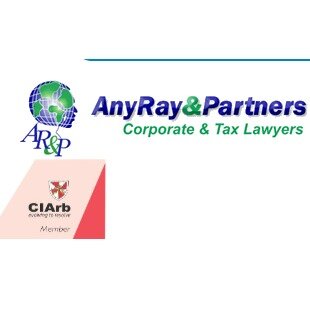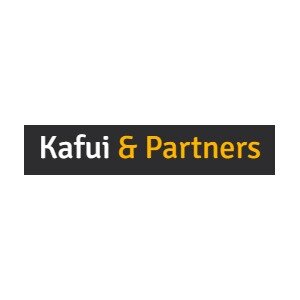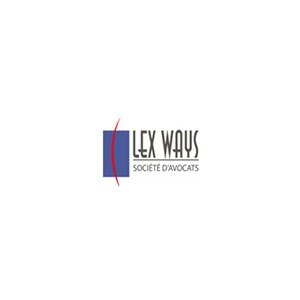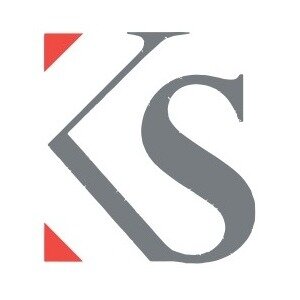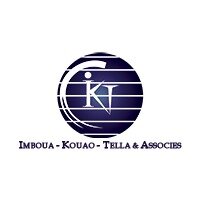Best Mining Law Lawyers in Ivory Coast
Share your needs with us, get contacted by law firms.
Free. Takes 2 min.
Or refine your search by selecting a city:
List of the best lawyers in Ivory Coast
About Mining Law in Ivory Coast
Mining Law in Ivory Coast, also known as Côte d'Ivoire, governs the exploration, exploitation, and management of mineral resources within the country. The legal framework is designed to attract foreign investment, ensure sustainable resource development, and regulate mining activities in line with national interests. The laws cover a range of minerals including gold, manganese, bauxite, diamonds, and nickel. The Mining Code, revised in 2014, is the cornerstone law that establishes how mineral rights are granted, the obligations of mining companies, and how revenues are shared between the state and private operators.
Why You May Need a Lawyer
Mining operations are complex and involve significant legal and regulatory requirements. Legal assistance is crucial in the following situations:
- Applying for exploration or exploitation licenses
- Negotiating mining conventions with the government
- Understanding tax obligations and incentives
- Complying with environmental and social regulations
- Resolving disputes related to land use, community rights, or contractual obligations
- Mergers, acquisitions, or joint ventures in the mining sector
- Dealing with compliance audits or government inspections
- Protecting investments and handling expropriation processes
A specialized mining lawyer can help ensure that all activities are compliant with Ivorian law and protect your interests throughout the lifecycle of a mining project.
Local Laws Overview
The essence of Mining Law in Ivory Coast is defined by the Mining Code of 2014 and its subsequent regulations. Here are key aspects:
- The state holds ownership of all mineral resources. Private entities may obtain rights to explore and exploit these resources through licenses and permits.
- Different types of permits exist, including prospection licenses, exploration permits, mining licenses, and quarry permits, each with specific conditions and durations.
- Mining conventions may be negotiated for large-scale projects, setting out special terms for taxation, customs, and operations.
- Local content is strongly encouraged, with requirements for employment of Ivorian nationals and engagement of local suppliers.
- Environmental impact assessments are mandatory before commencing most mining operations.
- The state reserves the right to a free, non-dilutable minority shareholding (usually up to 10 percent) in companies undertaking exploitation activities.
- Community and land use issues are regulated and require consultation and compensation where applicable.
- Strict reporting, health, and safety standards must be upheld at all times.
Frequently Asked Questions
What documents are required to apply for a mining license in Ivory Coast?
Applicants need to provide company incorporation documents, a detailed work program, evidence of technical and financial capability, and environmental impact assessment details, among other requirements.
How long does it take to obtain a mining permit?
The timeframe varies by permit type but can generally range from a few months for exploration permits to over six months for exploitation licenses, depending on project complexity and required approvals.
Can foreign companies own 100 percent of a mining project?
Yes, foreign ownership is permitted, but the state is entitled to a free minority stake of up to 10 percent in exploitation projects.
Are mining rights transferable?
The Mining Code allows for the transfer or assignment of mining rights but requires prior government approval.
What taxes do mining companies have to pay?
Mining companies are subject to corporate income tax, value-added tax, royalties on production, and sometimes customs duties, although some exemptions may apply under negotiated mining conventions.
What are the environmental obligations for mining companies?
Companies must complete an environmental impact assessment and obtain authorization before beginning operations. They are also responsible for site rehabilitation after mining activities end.
How are local communities protected under mining law?
Mining companies are required to consult with affected communities, provide compensation for land use, and support social development initiatives as part of their obligations.
What happens if a company fails to comply with mining regulations?
Non-compliance can result in fines, suspension, or revocation of licenses, as well as civil or criminal liability for severe violations.
Is it possible to negotiate special terms with the government?
Yes, large-scale projects can negotiate mining conventions that offer clarity on tax, customs, and operational terms, subject to government approval.
How are disputes resolved in the mining sector?
Disputes may be resolved through local courts or, in some cases, through international arbitration, especially if stipulated in mining conventions.
Additional Resources
If you need further information or guidance, the following organizations and resources can be helpful:
- Ministry of Mines, Petroleum and Energy - The main governmental body overseeing mining regulation and licensing
- Chamber of Mines of Côte d'Ivoire - An industry group representing mining companies and investors
- Investment Promotion Center of Côte d'Ivoire (CEPICI) - Offers assistance to prospective investors in all sectors, including mining
- Ivorian Bar Association - Maintains a directory of qualified legal practitioners
- Local NGOs specializing in environmental and community advocacy regarding extractive industries
Next Steps
If you require legal assistance in the field of Mining Law in Ivory Coast, consider taking these steps:
- Clearly define your legal needs, whether it is obtaining a permit, negotiating a contract, or resolving a dispute.
- Consult with a licensed lawyer or a reputable law firm specializing in mining law and the extractive industries.
- Prepare necessary documentation and project details for your lawyer to review.
- Ask about the lawyer’s experience with mining law and familiarity with Ivorian regulations.
- Follow up regularly to stay informed about your legal situation and compliance obligations.
Seeking professional legal advice can help prevent costly mistakes, ensure compliance with the law, and support the success of your mining ventures in Ivory Coast.
Lawzana helps you find the best lawyers and law firms in Ivory Coast through a curated and pre-screened list of qualified legal professionals. Our platform offers rankings and detailed profiles of attorneys and law firms, allowing you to compare based on practice areas, including Mining Law, experience, and client feedback.
Each profile includes a description of the firm's areas of practice, client reviews, team members and partners, year of establishment, spoken languages, office locations, contact information, social media presence, and any published articles or resources. Most firms on our platform speak English and are experienced in both local and international legal matters.
Get a quote from top-rated law firms in Ivory Coast — quickly, securely, and without unnecessary hassle.
Disclaimer:
The information provided on this page is for general informational purposes only and does not constitute legal advice. While we strive to ensure the accuracy and relevance of the content, legal information may change over time, and interpretations of the law can vary. You should always consult with a qualified legal professional for advice specific to your situation.
We disclaim all liability for actions taken or not taken based on the content of this page. If you believe any information is incorrect or outdated, please contact us, and we will review and update it where appropriate.
Browse mining law law firms by city in Ivory Coast
Refine your search by selecting a city.



